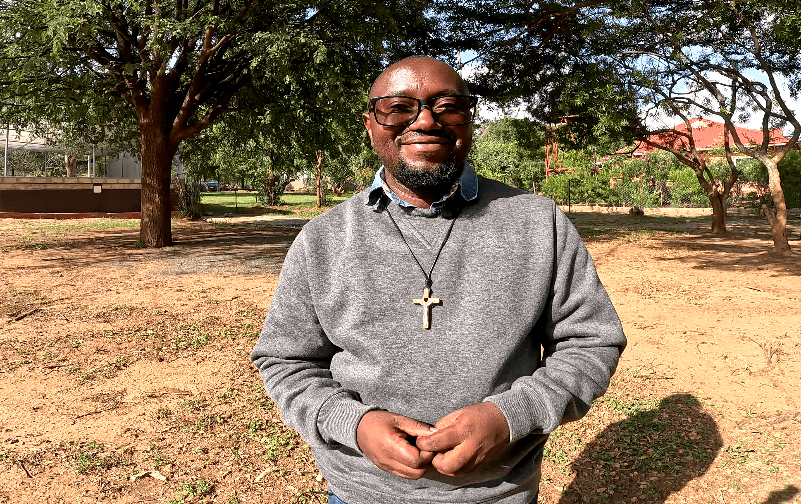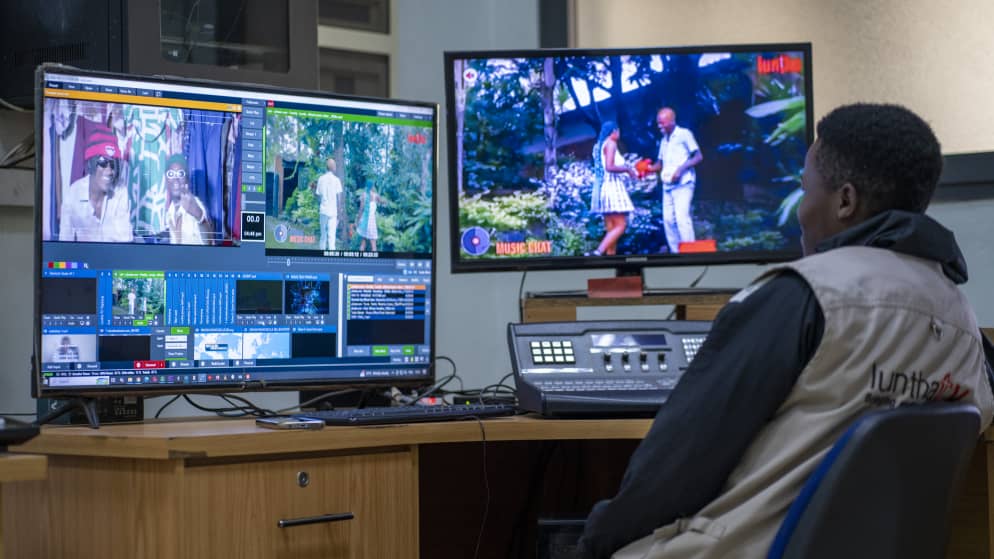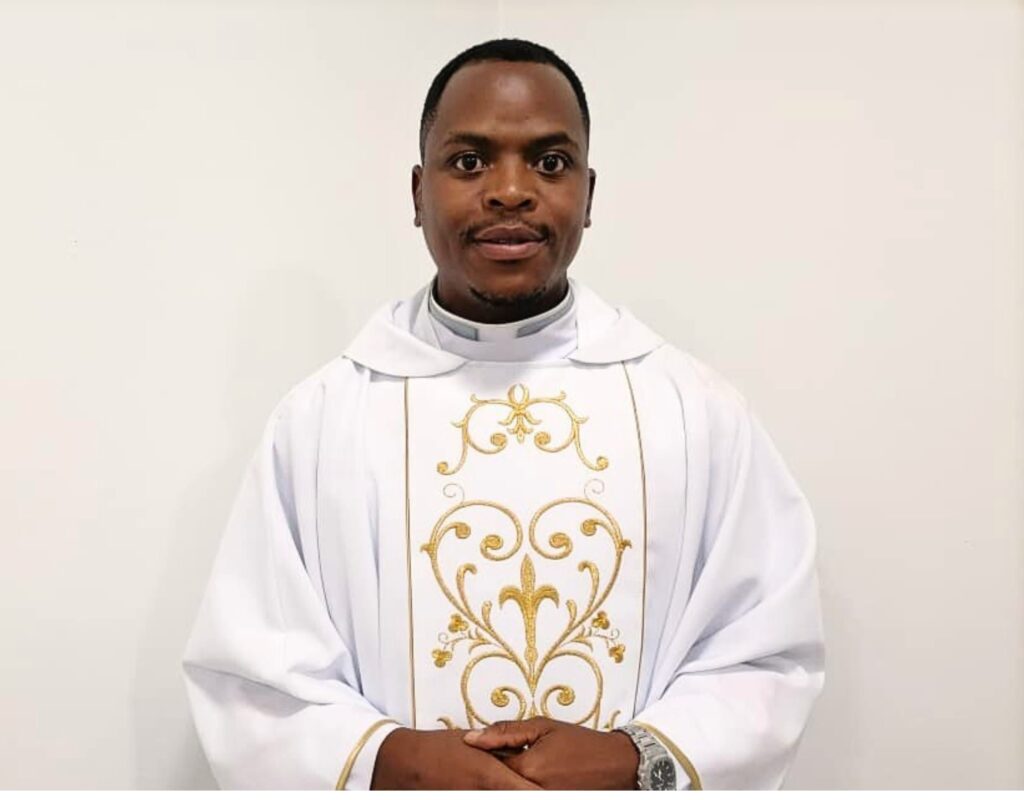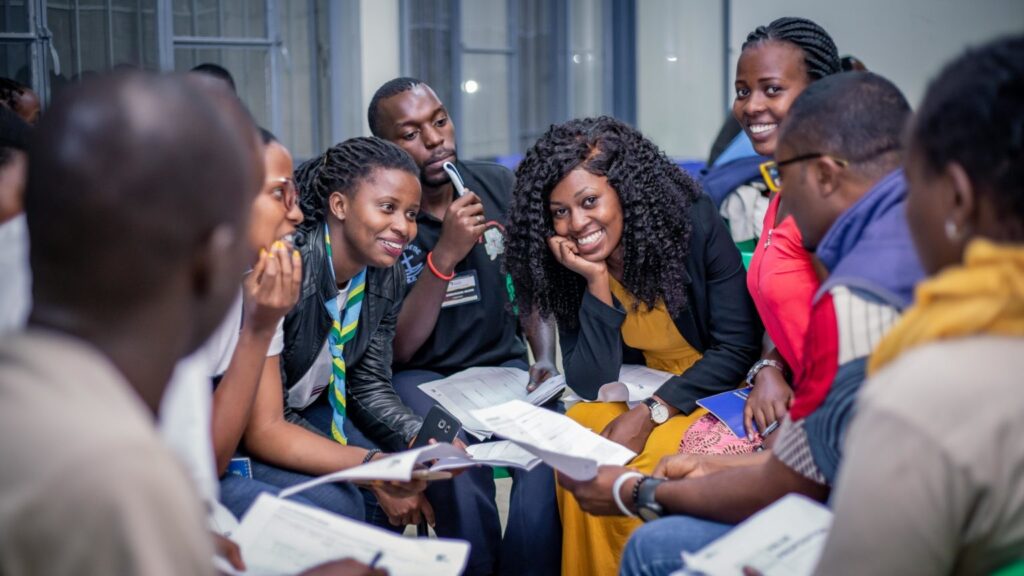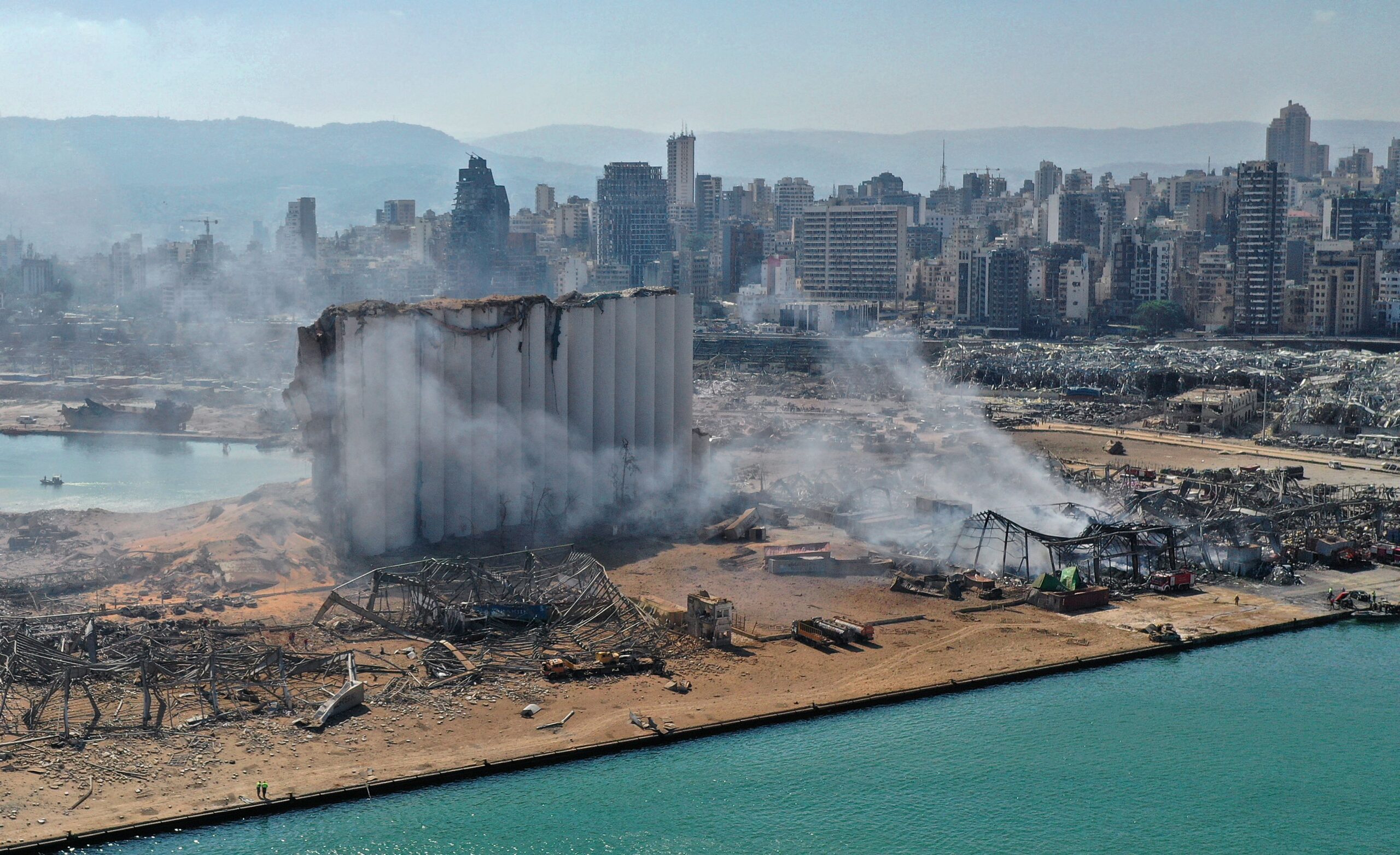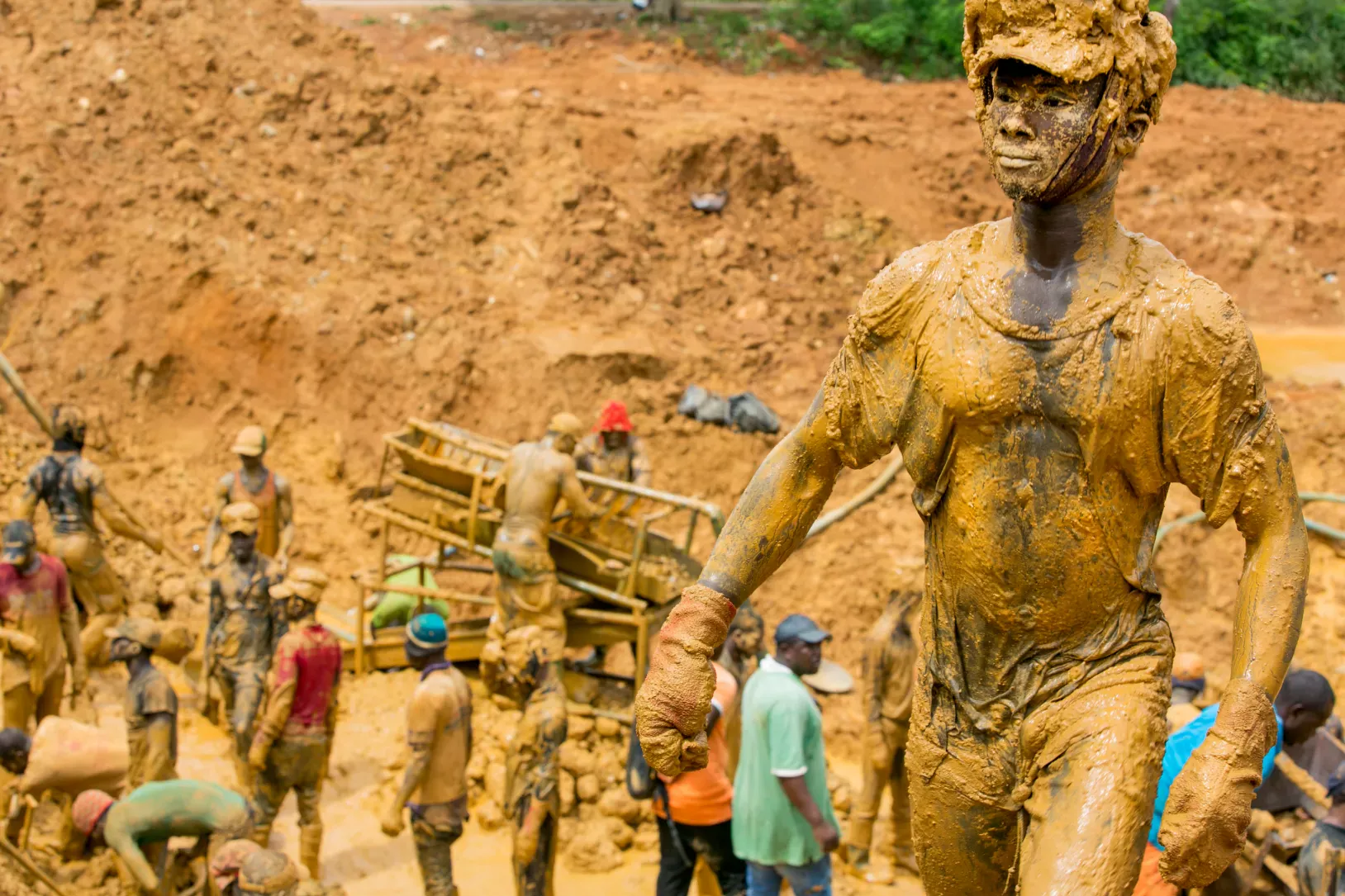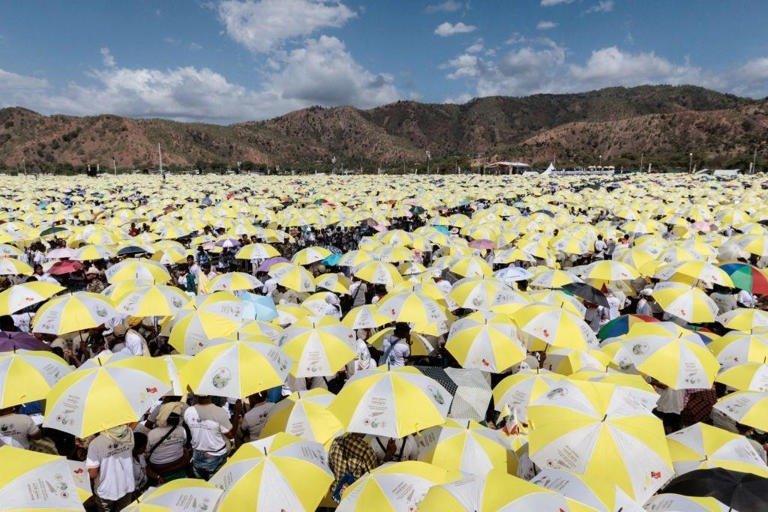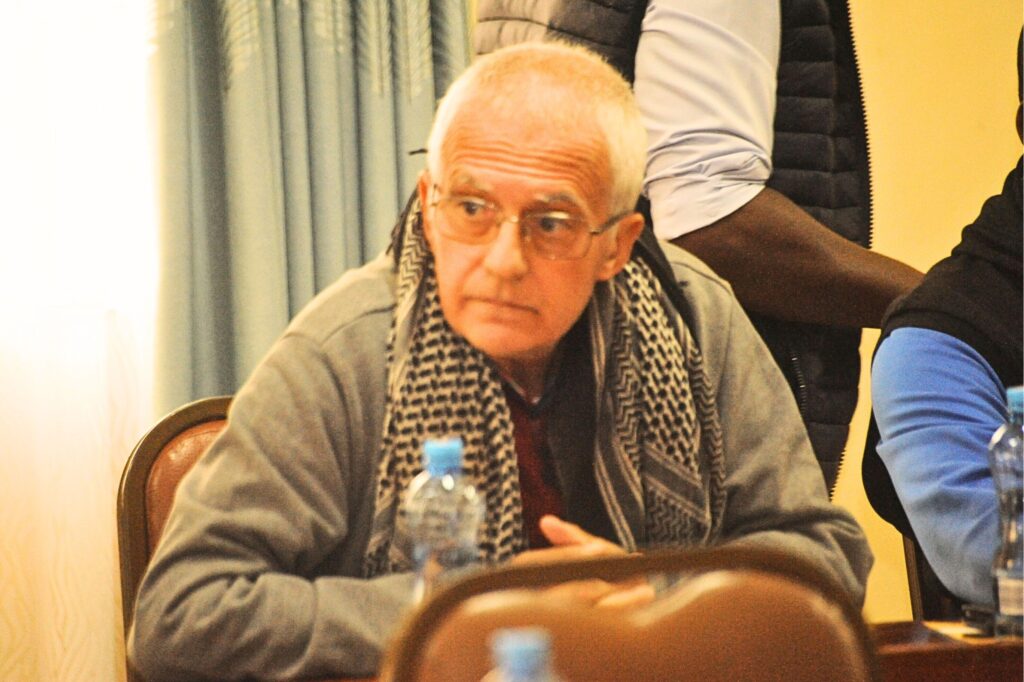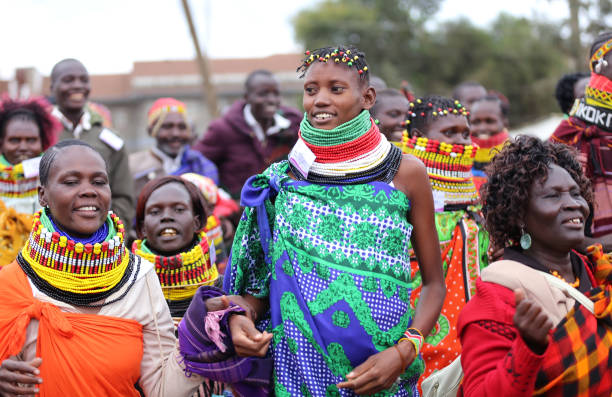In the rugged terrain of Amakuriat, Kenya, Father Katembo Muhandiro Jean-Paul finds his calling. The Congolese priest, now in his third year at this remote parish, reflects on his journey from aspiring missionary to ordained clergy serving a community far from home.
Fr. Jean-Paul’s path to Amakuriat began in 2009 when he joined the Comboni Missionaries in his native Democratic Republic of Congo. His formation took him across the African continent – from philosophical studies in Kinshasa to a novitiate in Cotonou, Benin, and finally to theological training in Nairobi, Kenya. It was during his missionary service in Amakuriat that Jean-Paul first encountered the community he would later call home. “My first impression was one of both challenge and opportunity,” he recalls. “The needs were great, but so was the faith of the people.” Returning to Amakuriat after his ordination in 2020, Jean-Paul found his perspective shifting. “The eyes are different now,” he says. “What I once saw as obstacles, I now see as chances to make a real difference.”
In just three years – one as a scholastic and two as an ordained priest – Father Jean-Paul has witnessed transformation, both in the community and within himself. “Every day brings new lessons in humility and service,” he says. “The people of Amakuriat have taught me as much as I hope to teach them.”
As he continues his mission, Father Jean-Paul remains grateful for the journey that brought him here. From the busy streets of Kinshasa to the pastoral landscape of Amakuriat, his path illustrates the global nature of modern missionary work and the enduring power of faith to bridge cultures and continents.
A Love Affair with West Pokot
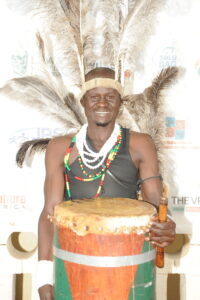 Father Jean-Paul’s connection to West Pokot runs deeper than his official three-year tenure might suggest. His eyes light up as he recounts his first visit to Amakuriat during Christmas of 2015, shortly after arriving in Kenya for his theological studies.
Father Jean-Paul’s connection to West Pokot runs deeper than his official three-year tenure might suggest. His eyes light up as he recounts his first visit to Amakuriat during Christmas of 2015, shortly after arriving in Kenya for his theological studies.
“I fell in love with the place, with the Pokot zone,” he says, his voice filled with warmth. “The lifestyle of the mission, the work of our confrères – it all spoke to me.”
This early encounter sparked a passion that would shape his future. Throughout his training, Jean-Paul found himself drawn back to West Pokot during holidays, each visit cementing his desire to serve in this challenging yet rewarding environment.
For Jean-Paul, West Pokot embodies the essence of the Comboni charism – first evangelization. “I come from a grown church with many priests,” he explains. “I felt called to go where the faith is still in its early stages, to be part of that fundamental work of spreading the Gospel.”
Despite nearly four decades of Comboni presence in Amakuriat parish, the region remains a frontier of faith. Jean-Paul faces this reality with enthusiasm tempered by humility, acknowledging the challenges that come with his calling.
“The first challenge is always the language,” he admits. While he has made strides in learning Pokot – able to understand conversations and engage in informal chats – preaching fluently remains a goal on the horizon. “It’s crucial to reach people with the Gospel in their own language,” he asserts. The vastness of the parish presents another formidable challenge. Covering over 100 kilometers, often on rough terrain, reaching all community members demands significant energy and sacrifice. Yet Fr. Jean-Paul approaches these obstacles not as burdens, but as an opportunity to learn, to serve, and to grow – bridging languages, cultures, and hearts in pursuit of a higher calling.
Education: A Key to Progress
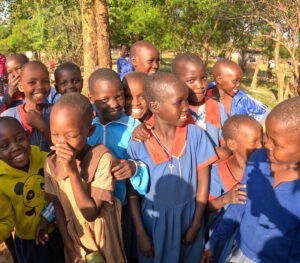
The parish supports an impressive 24 primary schools and two secondary schools, providing spiritual guidance, support for teaching staff, and financial assistance for students in need.
With a staggering 90% illiteracy rate in the area, education is not yet widely valued. While primary school assistance focuses on institutions, secondary and college students receive individual support. Selection for this support considers both academic potential and family circumstances, ensuring help reaches those most in need. Their efforts are slowly but surely making a difference in the community’s future.
“We support between 20 and 30 students in secondary school,” Father Jean-Paul notes. “In college, we have 10 to 15 current students, with another 10 to 15 new applicants waiting to join the program. It takes a lot of motivation to convince parents to send their children to school, and even when they want to, financial limitations often stand in the way.”
Embracing the Vulnerable
Perhaps one of the most touching aspects of the parish’s work is its support for disabled children. In a culture where disability is often seen as a curse, the parish’s efforts are groundbreaking. The program, running for several years now, has already made a significant impact, with over 10 children currently benefiting from this life-changing support.
“Many parents are not ready to invest in disabled children, but with support from our donors, we’re able to provide medical care and education for these children,” Father Jean-Paul explains.
Challenging Traditions, Empowering Girls
The struggle for education in this community is real, as girls are often victims of early marriages, a practice predominantly seen as a source of wealth according to Pokot culture. In West Pokot, the cultural norm views girls as meant for marriage, not as change-makers. Father Jean-Paul, together with other missionaries, works tirelessly to create awareness and change these deeply ingrained mindsets by providing education. 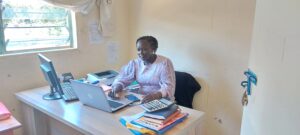 “We face challenges of early marriages and pregnancies,” he says. “We’re trying to help people understand that girls and boys have equal rights to education. It’s not easy when families are more interested in dowries and animals than in their daughters’ futures. We give special attention to the girl child,” Father Jean-Paul emphasizes. “Our goal is to keep them in school long enough to become self-sustaining and contribute to society and the country at large.”
“We face challenges of early marriages and pregnancies,” he says. “We’re trying to help people understand that girls and boys have equal rights to education. It’s not easy when families are more interested in dowries and animals than in their daughters’ futures. We give special attention to the girl child,” Father Jean-Paul emphasizes. “Our goal is to keep them in school long enough to become self-sustaining and contribute to society and the country at large.”
Pastoral Challenges in a Polygamous Culture
Despite the progress in education, evangelization presents its own set of challenges. “Bringing men to church is particularly difficult,” Father Jean-Paul admits. “We struggle to find lay people willing to collaborate with us in growing the Christian community.” This challenge is compounded by the prevailing polygamous culture, which conflicts with Christian values. ” Addressing this issue always leads to difficult conversations,” he says. With over 50 chapels to serve and only three priests, the need for local volunteers is acute. Yet, the missionaries persist, believing in the transformative power of their message.
In this challenging yet beautiful corner of Kenya, where cultural barriers, educational needs, health concerns, and basic infrastructure like water access are dreams yet to be realized, the Comboni mission continues its tireless work, writing new chapters in a story half a century in the making. Looking to the future, Father Jean-Paul emphasizes the need for more young people to stand up for Christ and overcome the fears of challenges faced on the path of missionary service dedicated to the mission. His message to the youth is clear. “Don’t be afraid to commit yourselves to the mission. There’s profound joy in serving the Lord and giving ourselves to others.” This call to service resonates deeply in the context of West Pokot’s ongoing needs from education and healthcare to the fundamental necessity of clean water the opportunities for meaningful contribution are vast. The challenges remain significant, yet the spirit of the mission remains strong bound by five decades of progress and the continued support of benefactors worldwide.
By Robin Moline Atieno

